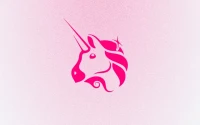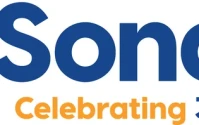Forget 'Learning to Code'—The Next Generation Will Learn to *Think* with AI Tutors
I recently sat in on a private demo—just a sterile conference room, a projector, and a handful of engineers buzzing with nervous energy. What I saw wasn't flashy. There were no holograms, no whirring robots. It was just a young student struggling with a complex physics problem on a tablet. But then, the magic happened. An AI, with a calm, synthesized voice, didn't give her the answer. It asked a question. Not a multiple-choice prompt, but a deeply Socratic one: "What if the force of gravity was inverted? What would happen to the apple first?"
The student paused, her brow furrowed. You could almost see the gears turning in her mind. She started sketching, talking it out. The AI listened, nudged, and rephrased, adapting its strategy in real-time based on her hesitations and breakthroughs. When I saw that, I honestly just sat back in my chair, speechless. I wasn't watching a better learning app. I was watching the birth of a new kind of thinking.
For years, we've been obsessed with the wrong conversation about AI. We ask, "Will it take our jobs?" or "Should everyone learn to code?" But these questions are a sideshow. The real revolution, the one that’s about to change everything, isn't about replacing human labor. It’s about augmenting human intellect from its very foundation. We are on the verge of creating personalized AI tutors that don't just teach facts; they teach the very process of discovery itself.
The End of the Assembly-Line Classroom
Let’s be honest: our education system is a relic of the industrial age. It’s designed to produce standardized workers, stuffing minds with the same information and testing for the same outputs. It’s a one-size-fits-all model in a world where individuality is the most valuable currency. What I saw in that demo is the antidote. The technology is being called "Dynamic Cognitive Scaffolding," or DCS. It’s a system that uses conversational AI and learning analytics to map a student's unique cognitive style—in simpler terms, it learns how you learn, and then it builds a personalized intellectual bridge just for you.
This isn't just a smarter flashcard app. Think of it less like a textbook and more like a dedicated, infinitely patient Socratic guide for every child on Earth. It’s the ultimate mentor. If a student learns visually, the AI generates diagrams. If they learn through analogy, it creates relatable stories. If they get stuck, it doesn't just provide a hint; it identifies the root of the conceptual misunderstanding and asks a question designed to help the student build their own way out.
The implications of this are just staggering—it means the gap between a student's curiosity and their understanding can be closed in real-time, creating a feedback loop of confidence and exploration that our current system just can't replicate. What happens to a generation that grows up not just knowing things, but deeply understanding how they know them? What kind of problems could they solve?

The Democratization of Genius
Every so often, a technology comes along that fundamentally reshapes the human landscape. The printing press took knowledge out of the hands of the elite and gave it to the masses. The internet did the same for information. This new wave of AI tutoring will do it for the very process of critical thinking. It’s the democratization of genius.
Imagine a world where a curious kid in a small town in Wyoming or a crowded apartment in Mumbai has access to the same quality of intellectual mentorship as the child of a Silicon Valley billionaire. That doesn't just level the playing field; it ignites human potential in millions of minds that the old system left behind. This is the kind of breakthrough that reminds me why I got into this field in the first place.
Of course, the skeptical headlines are already being drafted. "Will AI Tutors Make Kids Lazy?" they'll ask. But that’s missing the point entirely. This is like asking if a calculator makes a mathematician lazy. The calculator freed the mathematician from the drudgery of manual computation so they could focus on higher-level problems. In the same way, AI tutors will free students from the drudgery of rote memorization, empowering them to spend their time on what humans do best: creativity, synthesis, and asking "what if?"
I was scrolling through a forum on Reddit the other day, and the excitement was palpable. One user, a teacher, wrote, "I have 30 kids in my class, all with different needs. A tool like this isn't a threat; it's the partner I've always dreamed of." Another, a parent, commented, "My son has ADHD and struggles to focus on linear lessons. An AI that adapts to him could change his entire future." This isn't just a tech-bro fantasy; it’s a deeply human hope.
Now, our responsibility is immense. We have to ensure this technology becomes a bridge, not a wall. It must be open, accessible, and designed to empower everyone, not just a privileged few. But the path is there. For the first time, we have the tools to move beyond the age of information and into an age of cultivated wisdom.
A New Renaissance is Within Our Grasp
We are at an inflection point. The goal is no longer to create a workforce that can follow instructions. The goal is to cultivate a generation of innovators, critical thinkers, and creative problem-solvers. This technology is the key. It’s the tool that will unlock a level of human potential we’ve only ever dreamed of, creating not just smarter students, but a smarter, more capable, and more curious humanity.










